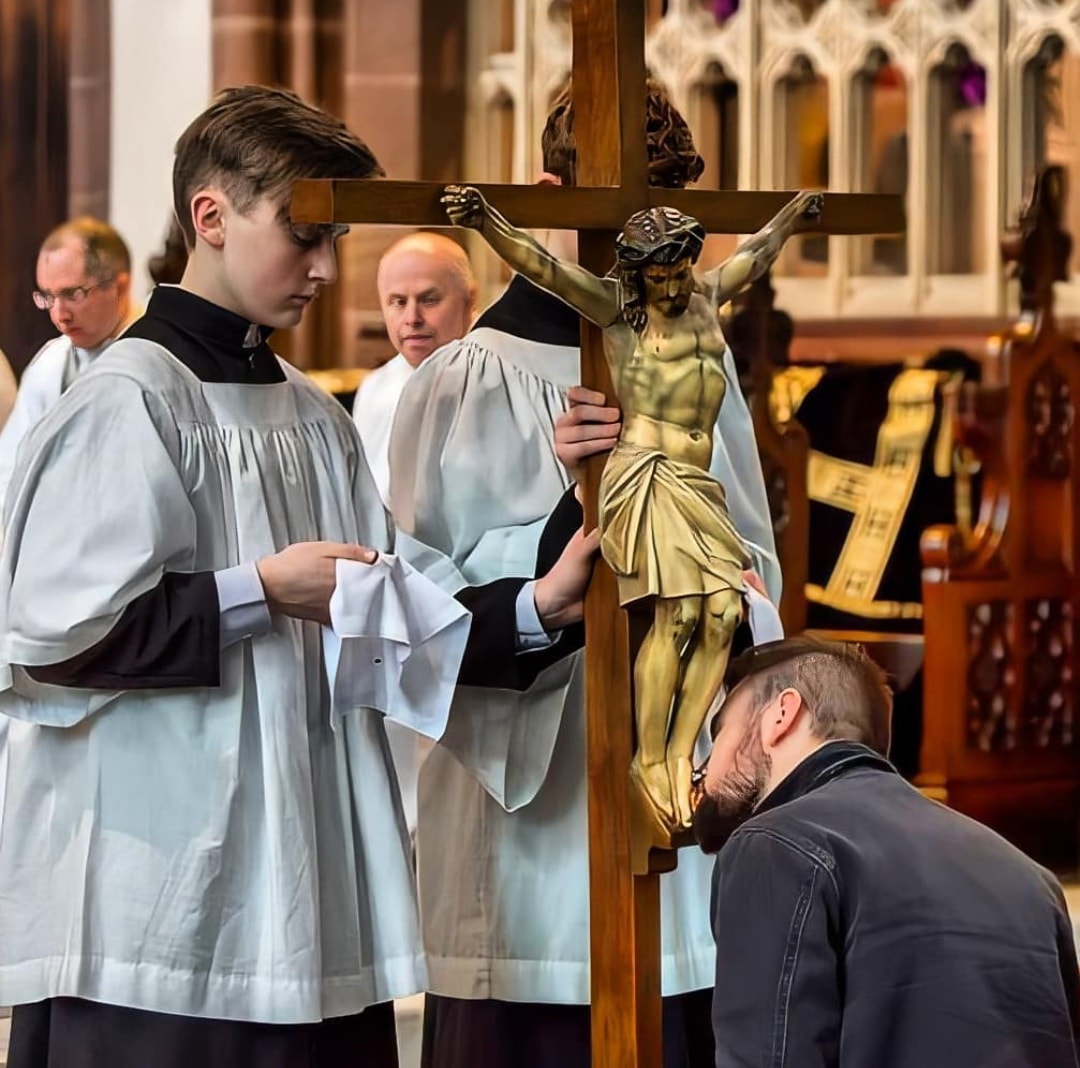
Jn.20:19-31
The Holy Catholic Church commemorates Divine Mercy Sunday today. The gospel passage of the day presents to us the depth of divine mercy manifested in the person of Jesus. We mediate the appearance of the risen Christ to his disciples in the gospel passage. Jesus offers his peace to their troubled and frightened hearts. He shows his sacred wounds on his hands and side so that they might believe in his resurrection. He also wanted to tell them that he was the same person who was crucified on the cross and died. Jesus, who knew their troubled and confused hearts, breathes on them the Holy Spirit and gives them a new vision of life, courage, and strength to be his apostles, sent out for his mission.
The greatest merciful deed that he does is commission them to forgive the sins of their fellow men. We have seen in the gospels the belief that only God could forgive human sins. Being the paschal lamb and offering his own life for the expiation of human sin, he gives authority to his chosen men to forgive sins. Thus, he showed great mercy to humanity by providing us with the sacramental grace of forgiveness by confessing our sins to his apostles and their successors.
When Jesus appeared, Thomas was not present there. When other apostles shared their testimony with him, he was not ready to blindly accept it. He demanded a personal encounter with the person of the risen Christ. Jesus could have very well ignored Thomas’ demand, stating that he was stubborn and doubtful. However, we see Jesus appearing to them after eight days specifically to give his personal experience to St. Thomas, allowing him to touch and experience his wounds so that he may believe in the resurrection of Christ. When he experiences divine mercy, he pronounces the most convincing confession of faith. “My Lord and My God…” Thomas knew, as a disciple, it was his right and privilege to experience the risen Christ. Thus, the merciful Christ fulfilled his heart’s desire.
In the first reading, we see how Peter experiences divine mercy in his life. Peter, who denounced Christ thrice publicly, became the greatest instrument of God’s mercy. Merciful Jesus could have decommissioned Peter for his infidelity and lack of faith, but instead he commissioned him as the leader of apostles and worked great wonders.People touched Jesus’ cloak, and they all experienced healing. In the acts of the apostles we read: “So that they even carried out the sick into the streets, and laid them on cots and mats, in order that Peter’s shadow might fall on some of them as he came by.” A great number of people would also gather from the towns around Jerusalem, bringing the sick and those tormented by unclean spirits, and they were all cured. ” (Acts. 5:15-16)
As we celebrate the divine mercy Sunday that Christ asked Faustina to commemorate in his honour, let us surrender our lives at the feet of the merciful Jesus. Let us become the face of God’s mercy by being merciful to others. It was John Paul II who instituted this feast in the year 2000, in which he also canonised Faustina, the apostle of Divine Mercy. Later on, he died on the eve of Divine Mercy Sunday in 2005. He was beatified May I, 2011 on Divine Mercy Sunday by his successor, Pope Emeritus Benedict XVI. He was canonised by Pope Francis on April 27, 2014, another Divine Mercy Sunday. The life of St. Faustina and St. John Paul II teaches us that when we grow in our devotion and faith in divine mercy, and be the face of God’s mercy to our needy and fellow brethren, we too receive God’s unconditional mercy in our lives. Let us develop a filial devotion to divine mercy and experience mercy in our lives.